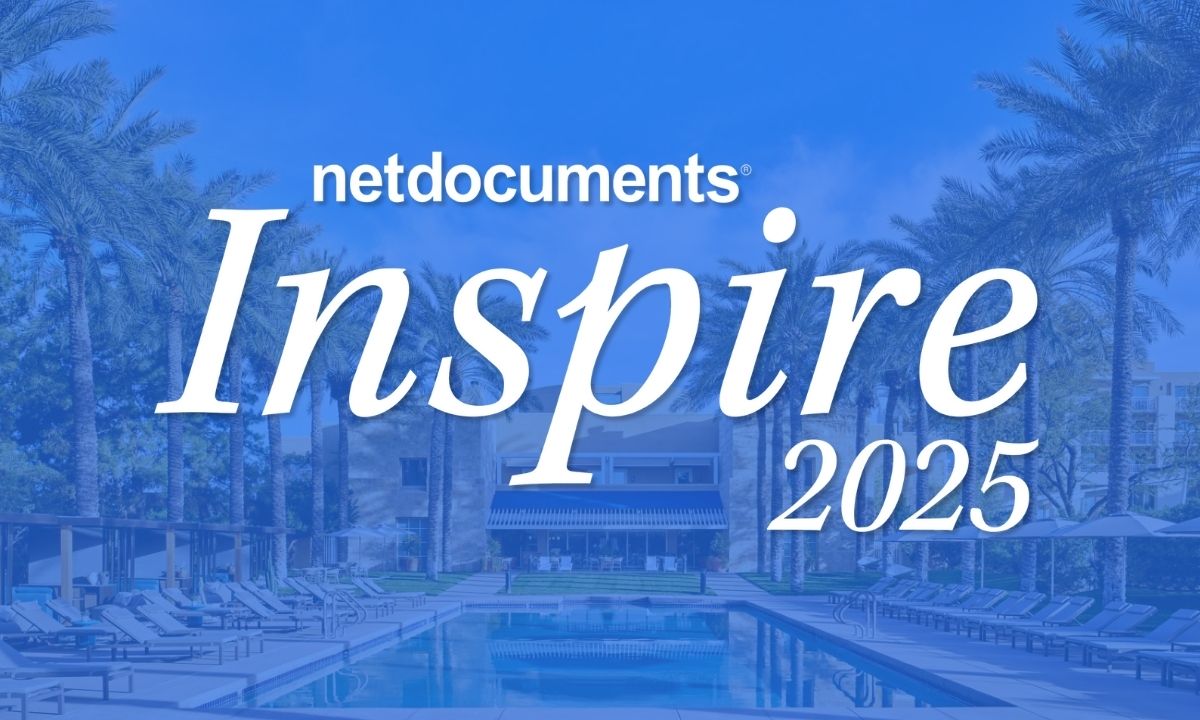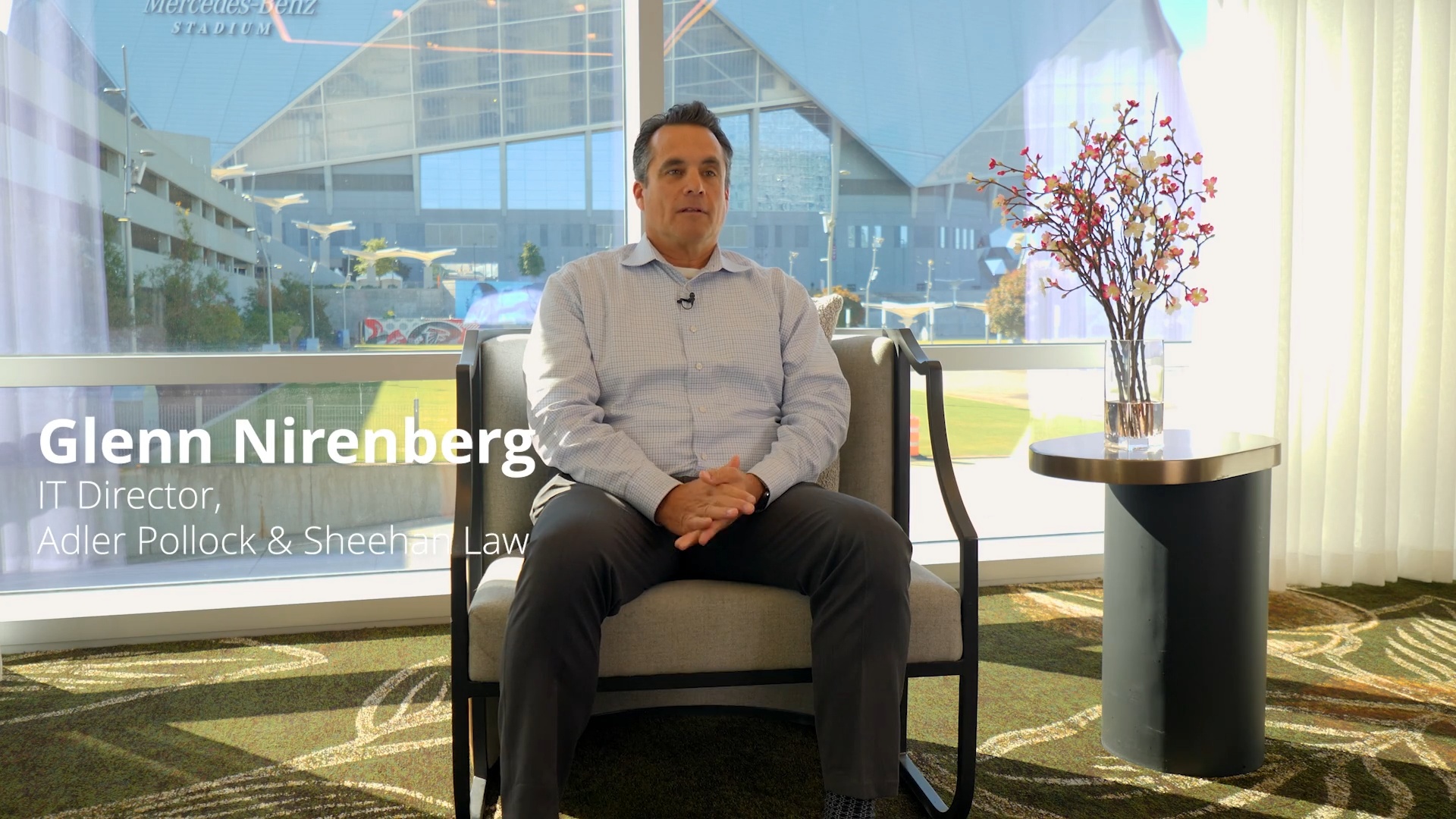
Cloud Document Management
Go beyond getting organized to creating intelligent workflows.
NetDocuments delivers AI-powered cloud document management, tailored to meet the needs of law firms, corporate legal teams, and government agencies. Built for security, scalability, and compliance. NetDocuments is the trusted choice for thousands of organizations worldwide.

Why choose NetDocuments for cloud document management?
NetDocuments is the preferred solution for organizations that need secure, compliant, and efficient document management. Trusted by legal professionals, corporate teams, and government agencies, it stands out for its reliability, compliance features, ease of use, and integrated legal AI.

Compliance-first approach
NetDocuments adheres to stringent standards, including FedRAMP, GDPR, and HIPAA, ensuring your documents meet global security and privacy regulations.

Integrated legal AI
Access the essential apps and AI-driven tools you need without the hassle of integrating countless vendors.

Scalable for growth
From small legal teams to large government agencies, NetDocuments scales with your organization, offering flexible document storage and workflow management.
Discover a smarter way to work
Here are some popular features.
Manage, Share & Collaborate in One Centralized Location
- Streamline and simplify the process of securely creating, editing, saving, and versioning all the documents that power your business — from anywhere, on any device
- Share and work on files internally and externally with workspaces and client portals built around matters and projects to support and enable your legal workflows
- Avoid document confusion with a reliable single system of record that gives you full version control, including sub-versions
- Connect to the other tools you’re already using with over 150 integrations and an open API and is easily accessible on any desktop or mobile device
- Work offline with confidence that your work won’t be lost with local file syncing capabilities
- Always have control over your documents and confidently comply with all client, regulatory, and governance requirements

AI Seamlessly Embedded
into Legal Workflows
The NetDocuments intelligent DMS integrates cutting-edge AI to deliver powerful legal-specific apps and a legal AI assistant that transforms workflows and streamlines efficiency, productivity, and accuracy — all seamlessly integrated into your existing DMS environment, eliminating the need for multiple point solutions.
- Legal AI Assistant: Get tailored AI assistance for legal inquiries, helping you respond to client needs more efficiently.
- Pre-Built Legal AI Apps: An ever-growing library of powerful, ready-to-use AI apps purposefully designed for daily use cases and specific practice areas.
- AI App Builder: Create bespoke AI solutions that adhere to your unique workflow and output requirements.

Find Exactly What You Need
- Save time previously spent trying to locate the right content with search results that surface the information most relevant to your work and provide filters to refine searches
- Eliminate searching with a customizable home page that provides one-click access to your most-used content, as well as lists of Recent and Favorite files and workspaces
- Take advantage of powerful search capabilities that leverage custom metadata and dynamic attributes to make documents easier to locate and use
- Securely connect all of your data repositories to experience a Google-like search experience for information from across the business

Connect the Tools You Use Daily
- Boost productivity with the ability to file any email into NetDocuments with one-click predictive filing
- Stay focused and avoid switching applications with a DMS that integrates into the Microsoft Office suite (including Teams), Google Workspaces, and Adobe Acrobat/Reader
- Make signing seamless by sending, receiving, and tracking electronic signatures without ever leaving your DMS
- Utilize robust open APIs and partner integrations to connect to any other tool your teams use, including practice management systems

Create Customized, Error-Free Documents at Scale
- Automate your expertise with legal document and workflow automation embedded directly in your DMS
- Generate entire packages of documents with the click of a button and store the input data for reuse
- Provide self-service apps to either internal or external stakeholders with a simple link
- Go beyond “find and replace” with advanced automation capabilities that allow you to add entire clauses based on conditional logic, execute calculations, complete third-party forms, and more

Boost Productivity with Workflow Automation
One of the key benefits of cloud document management is the ability to automate repetitive tasks. NetDocuments’ workflow automation tools allow legal teams, corporate departments, and government agencies to improve efficiency:
- Automated Document Routing: Automatically send documents to the right team members based on predefined rules, reducing manual work.
- Task Notifications: Keep everyone informed with real-time notifications about document approvals, changes, or deadlines.
- Version Control: Never lose track of document versions again with an intuitive system that manages edits and changes across teams.

Secure Your Data Seamlessly
Security is central to cloud document management. NetDocuments implements advanced measures to ensure data protection across all sectors:
- Reliable Encryption: All documents are encrypted both at rest and in transit, providing an additional layer of protection.
- Access Control and Permissions: Role-based access ensures that only authorized users can view, edit, or share documents.
- Audit Trails: Track document changes, user activities, and access points, ensuring full transparency and compliance during audits.

Platform capabilities
Streamline your legal cloud document management with NetDocuments.

Improve Efficiency for Law Firms and Corporate Legal Teams
Law firms and corporate legal teams of all sizes rely on secure and efficient workflows. NetDocuments enhances productivity with enterprise document management software that integrates seamlessly with existing systems and offers cutting-edge AI tools built into the platform. Whether overseeing a firm, multiple teams, or legal departments, workflow automation streamlines task delegation, keeping everyone aligned and on schedule. For law firms and legal teams seeking an intelligent, cloud-based document management system, NetDocuments offers all the necessary tools for seamless collaboration and compliance.
Secure Collaboration for Government Agencies
Government agencies require a solution that prioritizes FedRAMP-compliant document management. NetDocuments provides a cloud document management system designed to meet stringent standards, making it the go-to platform for secure document handling in the cloud. Real-time collaboration within cloud DMS allows teams to collaborate on documents from any location. With integrated legal AI tools, teams can take advantage of advanced technology without leaving the security of the NetDocuments platform.


Seamless Integration for IT Managers
NetDocuments seamlessly integrates with existing IT infrastructures, enabling IT managers to control document access and permissions across various departments. The cloud document management integration works with various platforms, ensuring secure data handling and user management at scale. Working with a DMS cloud solution from NetDocuments, IT managers benefit from its robust integration capabilities and flexibility.
Stay Compliant with NetDocuments’ Data Privacy Tools
Compliance officers need to ensure that their organizations adhere to privacy laws and regulatory guidelines. With compliance management software, NetDocuments offers built-in audit trails and data protection features that allow you to track documents with ease. Secure storage and encryption ensure that sensitive information is always protected.

“Now that our documents are in the cloud, we have confidence knowing that we’ll always find the most current version or correspondence, and NetDocuments search is extremely quick.”
Gary Smith, Richard & Richard
“We’ve moved all of our contracts, all of our real estate documents, litigation files, everything onto NetDocuments that way we’re all easily able to access whatever we need again either remotely or when we’re in the office.”

Nicole Adams
University of Dayton
“NetDocuments was a natural fit for Lavan because it is built in the cloud, unlike its competitors. NetDocuments’ tight integration with Microsoft’s productivity applications and the ability to manage documents and emails from a centralized location is also a big positive for us, as this means our lawyers can work productively and securely from anywhere.”

Marco Marcello
Lavan
How NetDocuments Works: A Step-by-Step Guide
NetDocuments offers a comprehensive document management solution that covers all essential stages of document handling, ensuring security, compliance, and collaboration. Below is a detailed guide to how NetDocuments works:
Secure Document Upload
Users can quickly upload documents into the cloud, ensuring instant access across all authorized devices.
Automated Version Control
Every change is automatically tracked, with previous versions saved and easily accessible, reducing the risk of errors.
Compliance Monitoring
Built-in tools provide automated reports on document activity, flagging any potential compliance issues.
Real-Time Collaboration
Multiple users can work on the same document simultaneously, with changes appearing instantly for all team members.
Access Control and Permissions
Administrators can define who gets to view, edit, or share documents, ensuring that sensitive data is protected at all times.
Integrated Legal AI
Use the AI assistant and pre-built legal AI apps to enhance and automate workflows.
User-friendly interface
A clean, intuitive platform that requires minimal training, allowing teams to hit the ground running.


Secure & compliant
NetDocuments is the trusted platform for intelligent cloud document management, with the security and scalability that law firms, corporate legal teams, and government agencies need. Built-in compliance tools, automated workflows, real-time collaboration, and integrated legal AI make managing documents easier and safer. Whether you need to comply with GDPR, HIPAA, or FedRAMP, NetDocuments has the tools to ensure you stay compliant.
Easy sign-up
Getting started with NetDocuments is simple and secure. Our sign-up process is designed to be quick and efficient, ensuring you can begin managing documents in the cloud without any delays.

customer stories
See what customers are saying…
“The key thing from the end user perspective is just the ease of use. I think it’s it’s relatively easy to work with.”
Glenn Nirenberg, IT Director
Adler Pollock & Sheehan
“We required a cloud-based document management solution that would support our journey to becoming a more flexible and resilient law firm that’s well-positioned to provide secure client services wherever and whenever they are needed.”

Toh Kok Seng
Lee & Lee
“NetDocuments helps me easily compare documents, keep track of versions in a single location, and make changes on the fly with the confidence that no one will use an old file. The ability to travel without a stack of paper in my briefcase is priceless.”

Jay Selanders
Kutak Rock
FAQs
How does cloud document management differ from traditional systems?
Cloud document management eliminates the need for physical servers, offering scalable, secure access, and better collaboration tools.
Can cloud document management improve compliance auditing?
Yes, with audit trails and version history, NetDocuments simplifies compliance and reduces errors during audits.
How does NetDocuments handle data backup and recovery?
NetDocuments uses automatic data backups with multiple redundancies to ensure that your documents are never lost. In the unlikely event of downtime, our recovery systems will restore your access quickly and securely.
How does NetDocuments ensure secure document sharing?
Our platform allows for encrypted, secure document sharing both internally and externally, with role-based access controls to ensure that only authorized users can view or edit documents.
How does NetDocuments integrate with our existing IT infrastructure?
The platform integrates smoothly with your current IT systems, offering API connections to a variety of business tools, including Microsoft Office, SharePoint, and other software.
Is cloud document management secure for legal and government use?
Yes, NetDocuments is compliant with GDPR, HIPAA, and FedRAMP standards, ensuring top-tier security.
What happens if I need help setting up NetDocuments?
Our support team is available 24/7 to assist with setup, integrations, and any issues that arise. Whether you are transitioning to a cloud based document management software or optimizing your law firm cloud storage, our team is ready to support your journey and help users get started.
Is there a limit to the number of users on NetDocuments?
No, NetDocuments is fully scalable. Whether you have a small team or thousands of employees, the platform can support all your document management needs without compromising performance.
Can I use NetDocuments on mobile devices?
Yes, NetDocuments is fully optimized for mobile use. Access your documents securely from any smartphone or tablet, no matter where you are.
What industries are best suited for NetDocuments?
NetDocuments is ideal for law firms, corporate legal teams, government and public sector agencies, higher education institutions, and any industry that requires secure, compliant document management.
Visualize Secure & Efficient Cloud Document Management
NetDocuments offers a visual experience that simplifies cloud document management for legal, corporate, and government teams. Below are some key features and the benefits they bring, show cased through dynamic visuals that highlight how the platform works:
Visualize task progress, approval workflows, and upcoming deadlines in one place, ensuring smooth team collaboration.
See a clear log of all document edits, versions, and access points, ensuring accuracy and compliance with minimal effort.
View how multiple team members collaborate on the same document with changes updated instantly, no matter the location.
Display compliance dashboards that track and manage GDPR, HIPAA, or FedRAMP compliance for regulated industries.
Ask questions about one or hundreds of documents and get instant reliable answers with the Legal AI Assistant, create your own legal AI apps with the AI App Builder, and use the ndMAX Studio for videos, demos, and ready-to-go AI apps that you can use right away.
Resources
Level up with these resources
-

- Webinar
2025 Legal Tech Trends
Six Trends Shaping AI-Driven Legal Practice AI has become central to…
-

- Webinar
Unlocking Potential: How Choosing the Right Legal Tech Empowers Firms to Thrive
Use Tech to Elevate Productivity, Security, and Profitability Law firms face…
-

- eBook/Whitepaper
LawyersWeekly Legal Tech Guide 2025
Use Advanced Tech to Stay Competitive Keeping up with technological advancements…
-

- eBook/Whitepaper
Document Management Buyer’s Guide 2024
Empowering Legal Professionals to Make Smart, Strategic Tech Investments Get this…
NetDocuments



